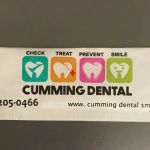
1. The Connection Between Oral Hygiene and Overall Health
When people ask why is oral hygiene so important, the answer goes far beyond a bright smile. The mouth is the entry point to the digestive and respiratory systems, and poor hygiene can allow bacteria to spread throughout the body. Research from American dental associations shows strong links between gum disease and systemic conditions like heart disease, diabetes, and even complications during pregnancy. A healthy mouth often reflects a healthy body, making consistent care essential.
2. Daily Habits That Protect Long-Term Dental Health
Experts recommend brushing twice a day with fluoride toothpaste, flossing daily, and rinsing with an antibacterial mouthwash. These steps help remove plaque, a sticky film of bacteria that causes cavities and gum irritation. In the U.S., routine dental visits every six months are also standard. Beyond these practices, limiting sugary snacks and staying hydrated with water further supports long-term oral health. Small choices each day add up to significant protection over the years.
3. Real Stories Highlighting the Impact of Oral Hygiene
Consider the story of a college student in California who ignored minor gum bleeding for months. What started as mild discomfort developed into gingivitis, requiring professional deep cleaning. On the other hand, a retired teacher in Texas shared how consistent dental visits and careful hygiene allowed her to keep her natural teeth well into her 80s. These stories remind us that oral care habits influence outcomes across a lifetime, proving that prevention is far less costly than treatment.
4. The Role of Professional Dental Care in Prevention
While home care is crucial, professional dentistry plays an irreplaceable role in prevention and treatment. Regular check-ups allow dentists to detect cavities, gum disease, and even oral cancer in their earliest stages. Early intervention can prevent more serious issues, saving time, discomfort, and money. In the U.S., many clinics also use advanced technology like digital imaging and ultrasonic cleaning to enhance patient care and comfort. Combining home care with professional support builds the strongest defense against dental problems.
5. Psychological and Social Benefits of Oral Hygiene
Oral hygiene isn’t just about health; it also shapes self-confidence and social interactions. Studies reveal that Americans often associate bright, healthy smiles with professionalism and trustworthiness. For example, one young professional in New York shared how investing in her dental care improved her confidence during job interviews, directly influencing her career opportunities. These benefits highlight how oral hygiene impacts both health and quality of life.
6. Expert Insights on the Link Between Oral and Mental Health
Dentists and psychologists alike emphasize that oral hygiene influences mental well-being. Chronic dental pain can lead to stress, anxiety, and even depression. Conversely, maintaining good oral health often encourages individuals to engage more confidently in social activities. This balance illustrates how dental care extends far beyond the physical, contributing to emotional and psychological resilience as well.
7. Family Dentistry Online Recommendations for Trusted Care
At Family Dentistry Online, we believe oral hygiene is the cornerstone of a healthier lifestyle. Our platform provides carefully curated service recommendations to help individuals and families find the best care in their local areas. Whether you need preventive check-ups, restorative treatments, or cosmetic enhancements, Family Dentistry Online connects you with trusted professionals who understand the importance of comprehensive dental health.







 Kremers, Forbes and Associates DDS5.0 (689 review)
Kremers, Forbes and Associates DDS5.0 (689 review) VCC: The Gary Center2.0 (45 review)
VCC: The Gary Center2.0 (45 review) Hassan Ismail5.0 (1 review)
Hassan Ismail5.0 (1 review) Open Door Family Medical Center- Sleepy Hollow4.0 (215 review)
Open Door Family Medical Center- Sleepy Hollow4.0 (215 review) Cumming Dental Smiles: Bethelview Road4.0 (529 review)
Cumming Dental Smiles: Bethelview Road4.0 (529 review) CJ Dental4.0 (13 review)
CJ Dental4.0 (13 review) The Importance of Oral Health Education During Pregnancy for a Healthy Pregnancy
The Importance of Oral Health Education During Pregnancy for a Healthy Pregnancy Best Tips for Brushing Your Teeth Properly for Healthy Gums: Essential Techniques for Oral Health
Best Tips for Brushing Your Teeth Properly for Healthy Gums: Essential Techniques for Oral Health Why Skipping Dental Checkups Can Lead to Bigger Oral Health Problems
Why Skipping Dental Checkups Can Lead to Bigger Oral Health Problems Advantages of Porcelain Dental Restorations
Advantages of Porcelain Dental Restorations How Can Diabetes Cause Tooth and Gum Problems? Preventing and Managing Oral Health Issues
How Can Diabetes Cause Tooth and Gum Problems? Preventing and Managing Oral Health Issues Healthy Habits for Promoting Good Oral Health and Hygiene: Tips for a Healthy Smile
Healthy Habits for Promoting Good Oral Health and Hygiene: Tips for a Healthy Smile